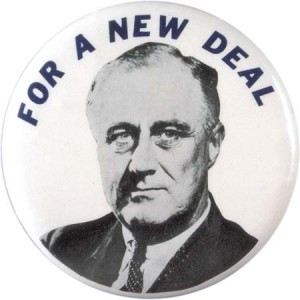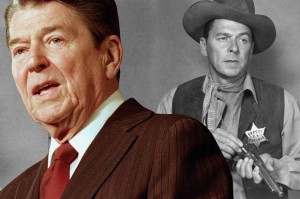Lately I’ve been delving a bit deeper into the underpinnings of this neoliberal philosophy that so dominates american politics and government these days.
Neoliberalism is a political philosophy that supports extensive economic liberalization policies such as privatization, fiscal austerity, deregulation, free trade, and reductions in government spending in order to enhance the role of the private sector in the economy.
As an economic theory, neoliberalism is the product of economists like Frederick Hayek in Europe and Milton Friedman in the U.S. However, its philosophical underpinnings, or the manner in which it has taken deep root in the American psyche, appears to be at least partly due to one person in particular, a lady named Ayn Rand.
You may know of her. She wrote two widely popular books, The Fountainhead and Atlas Shrugged. She also is the originator of a philosophy called objectivism.
Here’s part of the definition of objectivism from Wikipedia…
Objectivism’s states that the proper moral purpose of one’s life is the pursuit of one’s own happiness (rational self-interest) and that the only social system consistent with this morality is one that displays full respect for individual rights embodied in laissez-faire capitalism.
Rand’s philosophy of objectivism is rooted in the idea that reality and consciousness are separate things. Reality is something we perceive through our consciousness, but not something created by consciousness.
Rand eschewed altruism stemming from a sense of duty, or moral obligation. She believed altruism was only proper if the provider received something valuable to him or herself in return. And that the state should never be in the business of enforcing altruism, or taking away the property of an individual so as to enhance the “greater good.”
Rand saw as her arch enemy the 18th century German philosopher, Immanuel Kant. Kant believed that perpetual peace could be secured through universal democracy and international cooperation. He did believe that each individual is possessed of a duty owed towards others, expressed by Kant in the categorial imperative…
Act only according to that maxim whereby you can, at the same time, will that it should become a universal law.
To better understand how the categorical imperative functions as a logical argument, let’s take suicide, for instance. A single, depressed, person might believe that suicide is justified whenever there is a risk of future suffering, but once that idea is run through the rigorous test of the categorical imperative, the error of that logic becomes clear. If adopted as a universal law, the idea of suicide being so justified would spell the end of humanity, as everyone would have to commit it!
Kant believed that the duty implied in the categorical imperative, what many have likened to the “golden rule”, supplies the impetus for moral action apart from any need to turn towards religion.
Both Rand and Kant believed religion to be unnecessary as a guide for human action. However, Rand’s philosophy is a market-based one in which self-interest is the individual’s guide and in which any sense of duty is eschewed.
For starters, her philosophy defies what science now tells us, especially the science of quantum physics. We actually do play a part in the creation of the reality we perceive. In fact, reality responds to our perception of it. This has been shown in the experiment by which particles, the building blocks of all nature, appear as waves in the moment they are measured, or observed. In other words, our perception actually changes the basic nature of reality.
The reality of manmade climate change had yet to become a global issue by the time Rand passed away in the early 80’s.
However, let’s take Rand’s ideas and apply them to the case of the global warming problem. Yes, in doing so, we do have to admit that it is a problem. If you are one of those who still wants to defy science and say that it is not…perhaps you might want to skip further reading and continue on with your Randian neoliberal nonsense…
Rand of course would say that the “oilman” has every right, in fact, the moral obligation, in the pursuit of self-interest, to drill and pump as much of that substance from the ground as humanly possible. And that government should not have a damn thing to say or do about it.
However, now that science has told us, unequivocally, that doing so threatens the very planet we live on, is it still morally repugnant for government to step in and apply some regulation to this endeavor?
If so, then we’re all doomed.
If you take Rand’s objectivism and run it through the categorical imperative you quickly see the flaw in her logic. If every individual, separate and apart from any notion of duty to any other, pursues his or her self-interest to the utmost, then the world must ultimately run out of resources. We can see this in the sheer fact that if the entire world consumed at the same rate as the U.S.A., we would need 3 more earth’s worth of resources to sustain it!
There will always be some who have advantages over others…in terms of genetics, property, relationships, etc., etc. Those advantages create power imbalances.
According to Rand the government should be unable to do anything to help level the playing field. In that scenario, those power imbalances grow to monstrous proportions. That is exactly what we are seeing take place today in america, where one family owns as much wealth as the bottom 40% of all americans, as well as in the fact that our government seems to operate exclusively at the behest of the most powerful economically.
I believe the truth is that we do owe a duty to one another. That duty springs from the fact that we are all in this thing, or boat, or whatever metaphor you choose, together.
I like to call that a duty for impact.
That what I do does have an impact on others. And once you think of it in terms of the categorical imperative, you can quickly see the full extent of those impacts.
If I choose to act in a universally harmful way, yet not directly harmful to any other particular person, by, say, disregarding the environment, the impact becomes clear if you consider what would happen if everyone acted the same way.
It’s time we let go of Ayn Rand and neoliberalism and recognize our duty and connection to our fellow humans.
It’s time we started paying attention to our impact.





